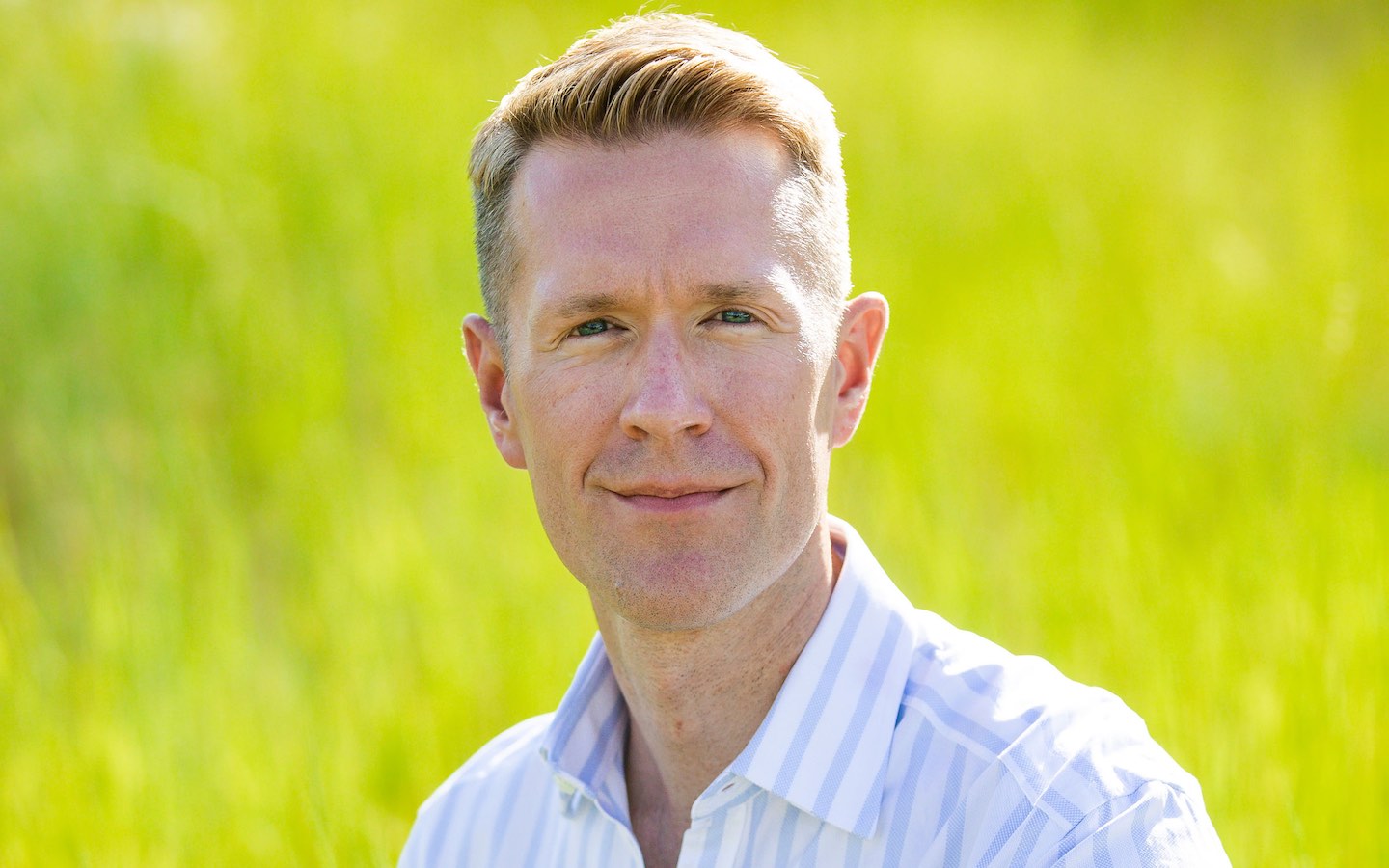
In February, Roosevelt University alum Timothy Stoddard released an EP of a new song cycle, Mortally Wounded, that celebrates new music for the classical voice.
Featuring pianist Ellen Fast, the work by Michael Markowski was commissioned for Stoddard and highlights the poetry of Federico García Lorca in three songs titled “The Guitar,” “A Star,” and “Trees.”
Stoddard and Markowski worked distantly on Mortally Wounded for months during the pandemic. The two chose poems in collaboration: Markowski sent Stoddard parts of the score, and Stoddard then returned recordings of the music.
Their collaboration prompted conversations of how the voice worked within the piece, text articulations, dramatic approaches, and piano orchestrations. Stoddard admires Markowski’s ability to capture the text and flavors of traditional Spanish song, which reflects his understanding of contemporary writing for the voice with areas that sound faintly of musical theatre.
GROWTH AFTER GRADUATION
The song cycle, Stoddard says, is a testament to his growth as an artist since graduating from the Chicago College of Performing Arts.
Stoddard graduated from the CCPA in 2008 with a Master of Music in Voice Performance. He says he often thinks about the voice faculty, especially Judith Haddon, and his peers. Stoddard describes his small graduate class as “a very tight-knit environment.”
The CCPA voice program introduced him to big-city life — and the competitive and disciplined career of operatic and classical singing. He says that the CCPA helped pave the way for a professional musical career.
“It set the stage for me to plumb my intellectual depths and explore how to fortify myself in the mental, emotional and frankly spiritual ways that could allow me to make progression on a professional musical path,” Stoddard said.
He added, “It’s a path that is often rife with disappointments and challenges that leave you feeling incredibly vulnerable, but also fill you with breathtaking beauty and awe.”
Stoddard’s advice to current Roosevelt students is, “It’s a long journey and you are only just beginning, so be patient and kind with yourselves as the artistic path unfolds.”
NEW SONGS FOR CLASSICAL VOICES
Stoddard had felt drawn to contemporary classical music since his undergraduate studies at the University of Idaho. However, he focused on standard repertoire to get his footing in the industry.
In 2014, his fellowship at the Lucerne Festival piqued his interest in new music. He performed contemporary and new works for the voice, working closely with soprano Barbara Hannigan and under the guidance of James Wood and Sir Simon Rattle.
Stoddard is drawn to classical singing because of beauty of tone and efficiency of technique. The complexity of contemporary music makes it a difficult feat to sound beautiful and effortless, which Stoddard finds “an exciting and diverse niche in classical singing.”
“I am on a constant quest to discover how to master my art in such a way that I feel completely free and uninhibited by things both internal and external,” Stoddard said. “It’s probably an impossible goal to attain, so I guess that’s why classical singing, as with so many other vocations and pursuits, is a labor of a lifetime.”
This year, Stoddard was a tenor-in-residence with the American Opera Project’s Composers & the Voice fellowship, where he worked directly with composers and librettists. This collaboration can highlight strengths of an instrument, how to stay true to a composer’s sound and honor the librettist’s intentions.
For Stoddard, this meant thinking about the way his voice works and efficiently communicating its functions within a piece. Communicating why certain phrases or settings are economical, or why certain articulations are difficult, taught him truths about his approach to singing.
MAKING MUSIC VIRTUALLY
Stoddard’s virtual music-making has led to other opportunities, overcoming the challenges of the pandemic.
Stoddard participated in an experimental production with the Tri-Cities Opera of Kamala Sankaram’s MIRANDA, designed to live in a virtual reality format. Singers performed live from a remote location wearing tactile suits to record their facial and body movements. Audiences experienced the production through virtual sets and devices.
He also filmed a virtual series with the Composers & the Voice, recorded virtual performances with his church job in Pittsburgh, and will give a live-streamed recital in Pittsburgh this summer.
Mortally Wounded is now streaming on Apple Music, Spotify and other major platforms.